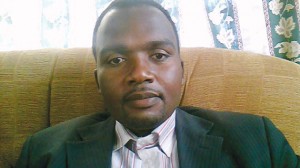
THERE are four cardinal virtues that define human beings as a species. These are love, conscience, knowledge and power.
All sane and reasonable human beings are by nature capable of self-consciousness and self-definition.
Self-consciousness and self-definition are the basic attributes of personality. There are many other aspects of personality that are beyond the scope of this essay. Most social, psychological and psycho-social problems emanate from the inner and external struggles of the self.
At a certain point in time all human beings have to grapple with the age-old questions such as: Who am I? Why am I here? Or why do I exist?
The answer to the first question addresses the issue of self-definition which is an essential part of our make-up as people or members of society.
No person can amount to anything in this life without a clear and precise definition of self. Self-definition is an essential part of self-preservation.
If one’s definition of self is faulty or doesn’t tally with one’s natural capabilities and life purpose, it is highly likely that one’s life or livelihood and posterity will not be preserved.
This stimulates feelings of fear of the future in any rational person if they have to grapple with issues hindering their self-definition.
- Chamisa under fire over US$120K donation
- Mavhunga puts DeMbare into Chibuku quarterfinals
- Pension funds bet on Cabora Bassa oilfields
- Councils defy govt fire tender directive
Keep Reading
The second and third questions address the issue of purpose of life. To some people, life has no purpose; it is a quirk or an accident of nature.
The presence of religions the world over apparently implies that people and societies have both physical/material and spiritual dimensions of thought and conceptualisation of reality.
The spiritual seems to be capable of giving to people or society a moral compass to be able to define the basic rules of engagement in personal and social contexts.
The Judeo-Christian belief system explains human existence in terms of the monotheistic Supreme Being who is the original uncaused Cause who causes all things to become or exist.
This Supreme Being in the Bible is called God. In Genesis 1, he is presented as the primary reason and mover of all that ever was, all that is and all that shall be.
The Bible nevertheless does not attempt to explain God, it just reveals him. Many countries worldwide have for centuries used the Judeo-Christian belief system anchored on the Bible as a source of moral light and life.
It is only in recent times that humanistic, Eastern and Middle Eastern philosophies have taken advantage of increasing globalisation and technological progress to expand to other parts of the world.
Love Love is an aspect of human personality that defines relationships. Love is the common denominator that ties all human beings together. Where there is love, there is tolerance, sharing of the material and non-material comforts of life. Love is able to preserve where hatred recommends destruction.
It is a basic fact of life that those who appear to be our enemies in the present may be our best friends in the unknown future.
Hatred as both an emotion and behaviour is actually a learned behaviour. Hatred is never natural to any person or persons. Warped, distorted and myopic attempts of self-definition by a person or persons are usually the root cause of most isms such as tribalism, racism, and fundamentalism.
People are taught that they belong to a certain race, tribe or social grouping. This knowledge does not occur naturally like the craving to breast feed and the capacity to do the same when a child is born.
The manner in which the late South African former President Nelson Mandela forgave and disarmed his former tormentors with his overflowing love is a classic example of the power of love over hatred.
Love and light are the same. They both expose and dispel all that represents evil or warped aspects of human personality.
In this cold world dominated by unbridled materialism, it is important that families, social groups and education centres promote love as a peace-building tool in society.
Conscience Conscience is the fountain from which flows our understanding and appreciation of right and wrong. Conscience is also the foundation stone upon which rests notions of natural and human justice.
If human beings had no conscience, they would not be different from beasts or animals. The reason why there is so much corruption in business, political and social spheres of life is because while humanity has advanced technologically and scientifically, a serious regression has occurred when it comes to morals or the principles that govern people’s existence.
Some people in the so-called modern world believe that they can toy around with morals and values that preserved societies from antiquity without any serious personal and social consequences.
The relaxation of moral principles in the modern world has resulted in a tsunami of crime, family breakdown, conflict, turmoil in governments and societies leading to the rise of failed states like Somalia and Syria.
The only way of countering this negative trend is to revisit the values and mores that preserved previous generations.
The forthcoming article will explore the importance of knowledge and power in the preservation of the human race.
Ian Ndlovu is an economist based at the National University of Science and Technology (NUST) skilled in data analysis using SPSS, Gretl, Stata, Eviews and Microsoft Excel software packages.
His research interests cover business, development, economic and e-commerce issues. He writes in his personal capacity.










